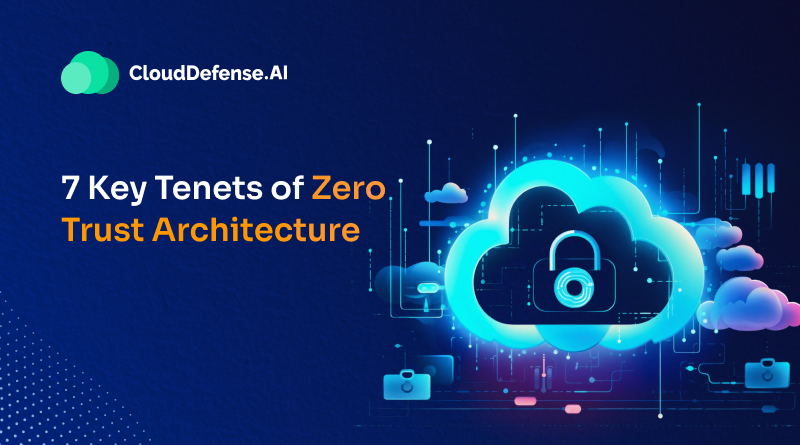
10 Reasons Why Enterprises Need Zero Trust Security
Mid-sized businesses with 100-1000 employees face heightened risks of cyberattacks, yet often lack the resources and expertise to adequately protect themselves. Threat actors target these organizations as they perceive them as lucrative targets with potentially weaker defenses.
According to Forbes research, SMBs are three times more likely to be targeted by cybercriminals than larger enterprises. In this article, we’ll explore ten compelling reasons why mid-sized businesses urgently need to adopt a Zero Trust security approach to reduce these risks and boost their defenses.
Zero Trust for Mid-Sized Companies
Mid-sized companies need Zero Trust security to protect against the rising tide of cyber threats. Contrary to common belief, they are not immune to cyberattacks and often lack the resources of larger enterprises to recover from breaches. Zero Trust’s principles, such as strict access controls, continuous monitoring, and least privilege access, help mitigate the risk of data breaches and unauthorized access.
Additionally, the financial impact of cyberattacks on mid-sized companies can be devastating, with an average loss of $2.5 million per attack for organizations with less than 500 employees. Moreover, the damage to reputation and brand equity can have long-lasting repercussions, impacting revenue and customer trust.
As remote and hybrid work environments become more prevalent, the need for strong cybersecurity measures is necessary. Zero Trust provides a proactive defense strategy, ensuring that mid-sized companies can protect their assets, maintain business continuity, and protect against cyber threats.
10 Reasons Mid-sized Businesses Need Zero Trust Security
Mid-sized businesses need Zero Trust security because traditional security methods don't work well anymore. Employees might have too much access, putting the company at risk. It's hard to control who can access what, which can lead to problems. If the company doesn't follow data protection rules, it could face fines. Here are 10 reasons why Zero Trust Security is a must-have in mid-sized businesses.
Increased Vulnerability to Attacks
Mid-sized companies relying on traditional perimeter-based security models face heightened vulnerability to cyber threats like phishing and ransomware. Zero Trust mitigates these risks by enforcing strict access controls and continuous monitoring.
Insider Threats
Without a Zero Trust model, employees may possess more access privileges than necessary, increasing the risk of insider threats. Zero Trust's principle of least privilege ensures that access is granted on a need-to-know basis, reducing the likelihood of malicious actions.
Inadequate Access Control
Traditional security models often need more granular access controls, making it challenging to implement the Principle of Least Privilege effectively. Zero Trust provides precise control over user access rights, minimizing security gaps and unauthorized access.
Compliance Risks
Resource Drain
Legacy security models require extensive maintenance and manual oversight, straining the resources of mid-sized companies with limited IT departments. Zero Trust streamlines security operations, reducing the burden of manual tasks and resource-intensive processes.
Slow Response to Threats
Traditional security approaches may lack real-time monitoring capabilities, delaying the detection and response to cyber threats. Zero Trust enables threat detection and rapid response, minimizing the potential impact of security incidents.
Inefficiency in Remote Work
With the rise of remote work, securing access to corporate assets becomes more challenging. Zero Trust ensures secure access regardless of location, safeguarding remote and hybrid work environments against cyber threats.
Difficulty in Partner Collaboration
Collaborating securely with multiple partners can be cumbersome without a Zero Trust model. Zero Trust facilitates secure data sharing and role-based access, enhancing collaboration without compromising security.
Data Leakage
Without meticulous monitoring and management of data flows, mid-sized companies are susceptible to data leakage incidents. Zero Trust architecture ensures granular control over data access, reducing the risk of sensitive information exposure.
Reactive Instead of Proactive
Traditional security measures often focus on reactive responses to breaches, leading to costly damage control efforts. Zero Trust promotes a proactive security posture, preventing breaches before they occur and minimizing the need for reactive measures.
The Road to Zero Trust for Mid-Sized Businesses
In the face of escalating cybersecurity threats, mid-sized businesses must adopt a Zero Trust security approach. This concise list outlines essential steps for implementing Zero Trust, enhancing resilience, and protecting critical assets.
- Embrace an anomaly detection mindset, treating all behaviors as potentially malicious, as the foundational shift towards Zero Trust.
- Communicate the adoption of Zero Trust to employees, emphasizing that it doesn’t reflect a lack of trust in them but rather redistributes the responsibility of data security.
- Enable secure remote work by implementing Zero Trust, reducing the vulnerability of mid-sized businesses to cyberattacks.
- Collaborate with managed service providers to navigate the complexities of Zero Trust implementation effectively.
- Understand that Zero Trust is a holistic security strategy, not a singular tool or technology, and avoid hasty purchases without a clear overarching strategy.
- Take a step-by-step approach, prioritizing critical network assets and addressing specific security needs, to gradually transition towards a Zero Trust model.
- Recognize that achieving a full-fledged Zero Trust program takes time and effort, but incremental progress is essential for enhancing cybersecurity resilience.
How can AWSZeroTrustPolicy Help Mid-Sized Businesses?
AWSZeroTrustPolicy offers significant benefits for mid-sized businesses grappling with cybersecurity challenges. By harnessing AWS CloudTrail logs, this open-source AWS Policy Generator API empowers organizations to implement strong access controls based on the principle of least privilege.
This customized approach ensures that users only access what they need for their specific tasks, effectively reducing the attack surface and minimizing security risks. For mid-sized businesses with limited resources and expertise in cybersecurity, AWSZeroTrustPolicy provides a scalable solution to strengthen their security infrastructure.
By adopting a Zero Trust security model facilitated by AWSZeroTrustPolicy, these organizations can cultivate a culture of security awareness and protect sensitive client data effectively. With its user-centric focus and ability to tailor policies to actual user activities within a specified timeframe, AWSZeroTrustPolicy offers a practical and efficient solution for mid-sized businesses seeking to enhance their overall security and mitigate the ever-evolving cybersecurity threats.
